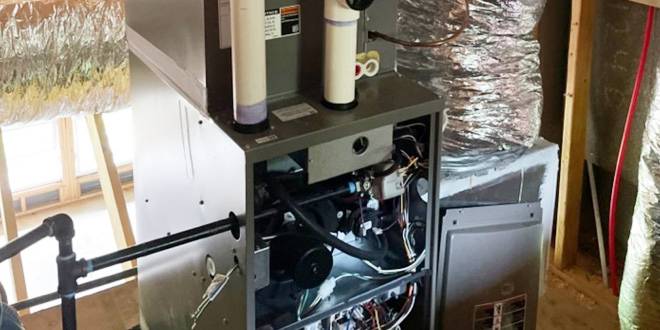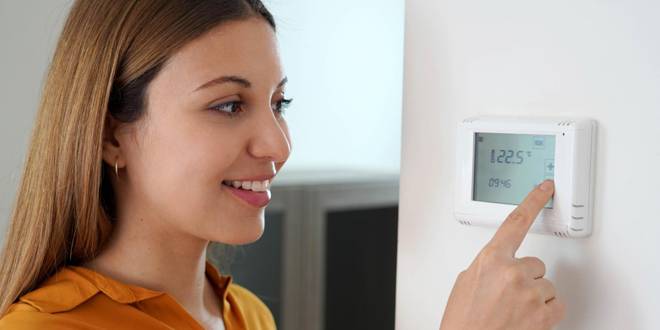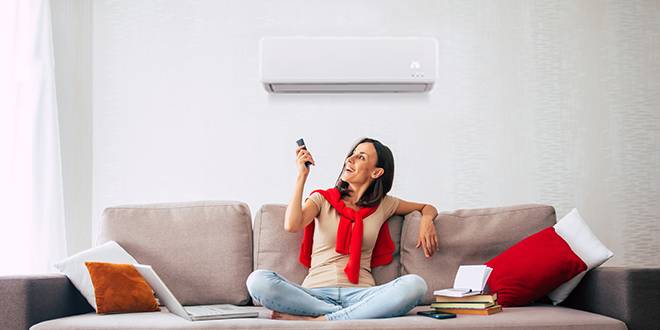
Glossary of Key HVAC and Air Quality Terms
- HVAC (Heating, Ventilation, and Air Conditioning): A system that regulates indoor temperature, humidity, and air quality.
- Air Filter: A device in your HVAC system that captures particles like dust, pollen, and other pollutants, helping clean the air before it circulates.
- Humidity: The level of moisture in the air; important for comfort and indoor air quality.
- Heat Pump: A device that transfers heat from outside to warm your home in winter, while also aiding in air circulation.
- MERV Rating: The “Minimum Efficiency Reporting Value” scale, which rates air filter efficiency in capturing particles; higher ratings mean finer filtration.
- Ventilation: The process of bringing in fresh outdoor air to reduce pollutants and improve indoor air quality.
- IAQ (Indoor Air Quality): A term describing the cleanliness and healthiness of the air within and around your home.
Why Indoor Air Quality Matters in Winter
During the winter, the air in our homes can become stale and potentially polluted. Because we seal our homes to keep the heat in, indoor air quality (IAQ) can suffer as contaminants like dust, allergens, and even potentially harmful gasses become trapped inside. Poor IAQ can exacerbate allergies, respiratory issues, and even affect your overall comfort and energy levels at home. Fortunately, you can take simple steps to improve the air quality indoors, especially in the winter.
In this guide, we’ll walk you through practical ways to reduce pollutants and create a healthier, more comfortable home environment. These tips range from regular maintenance tasks—like changing air filters—to upgrading your HVAC system. Whether you’re using a furnace, a heat pump, or other heating system, following these tips can make a noticeable difference in the air you and your family breathe.

1. Replace or Upgrade Your HVAC Air Filters Regularly
One of the most straightforward ways to improve indoor air quality is to regularly replace or upgrade your HVAC system’s air filters. Filters trap airborne particles such as dust, pet dander, pollen, and even bacteria, preventing them from circulating back into your home’s air supply. However, during the winter, when your heating system runs more frequently, these filters can quickly become clogged.
It’s generally recommended to replace air filters every 1-2 months in winter, especially if you have pets or household members with allergies. You may also consider upgrading to a filter with a higher MERV rating (between 8-12 for residential use), as these filters capture finer particles more effectively. At Cartwright Heat & Air, we offer a full heating maintenance service that includes checking and replacing filters as needed, ensuring that your system is performing at its best and supporting healthy indoor air.
2. Use a Whole-Home Humidifier to Balance Humidity Levels
The cold, dry winter air outside can make indoor air feel similarly dry, which not only causes discomfort but can also lower your home’s indoor air quality. Dry air can irritate skin, nasal passages, and respiratory systems, as well as make allergens like dust more irritating. By using a humidifier, you can add much-needed moisture to the air, helping to maintain an optimal humidity level of 30-50%. Proper humidity levels also make the home feel warmer, which can reduce energy consumption as well.
A whole-home humidifier connects directly to your HVAC system, adding moisture to the air as it circulates through your home. If your HVAC doesn’t have a built-in humidifier, our technicians at Cartwright Heat & Air can assess your system and suggest the best solution, whether you’re using a furnace or heat pump.
3. Improve Ventilation in Key Areas of Your Home
Ventilation is crucial in managing indoor air quality, as it brings fresh outdoor air in and helps push out pollutants. However, in winter, it’s not practical to open windows and doors frequently, as this can waste energy and make your home uncomfortably cold. There are other ways to ventilate your home effectively without compromising warmth.
Exhaust fans in the kitchen and bathrooms are excellent for pushing out stale air, especially during cooking or showering. Even running them for short periods throughout the day can make a difference. If you have a well-maintained HVAC system, you can also use your system’s fans to circulate fresh air throughout your home. Our team at Cartwright Heat & Air can help make sure your heating system supports efficient air circulation, which is essential for maintaining fresh indoor air during the winter months.
4. Schedule a Professional Winter Heating System Inspection
Another essential step in improving indoor air quality during winter is to have your heating system professionally inspected and maintained. Heating systems, especially those that burn fuel, can emit pollutants like carbon monoxide (CO) if they aren’t properly maintained. A regular winter inspection helps ensure that your system is free from leaks and operating safely.
During a heating inspection from Cartwright, our technicians will thoroughly check each component of your system, looking for signs of wear and addressing any issues that could compromise air quality or safety. This inspection will reduce contaminants, improve energy efficiency, and ultimately help your system run cleaner and longer. And if you’re considering upgrading to a more efficient heating option, our team can provide guidance on furnaces and other heating solutions that best fit your home’s needs.
Indoor Air Quality Improvements at a Glance
| Strategy | Benefits for IAQ | How Often to Perform |
| Replace Air Filters | Reduces dust, allergens, and pet dander | Every 1-2 months |
| Use a Humidifier | Maintains moisture, reducing dust | Throughout winter |
| Ventilation | Dilutes indoor pollutants | Daily in bathrooms and kitchens |
| Professional System Inspection | Ensures safe, pollutant-free operation | Annually, before winter |
| Add Indoor Plants | Naturally filters air, improves humidity | Keep year-round |
Fun Facts About Winter and Indoor Air Quality
- Indoor Air Can Be Dirtier than Outside Air: Studies indicate that indoor air can be up to 5 times more polluted than outdoor air, especially during the winter when ventilation is reduced.
- Humidity Can Help Combat Germs: Maintaining a humidity level of around 40-60% can reduce virus survival rates, as viruses often thrive in dry conditions.
- Plants Are Natural Air Purifiers: Certain houseplants, like peace lilies, spider plants, and snake plants, can help filter out toxins and add a touch of humidity to the air, making them great additions for winter.
- Carbon Monoxide Detectors Are Essential: Since heating systems can potentially emit carbon monoxide, having CO detectors installed in your home is crucial for safety, especially during winter.
Winter Indoor Air Quality FAQ
- Why does air quality worsen in winter?
With closed doors and windows to retain heat, the air indoors becomes stagnant, and pollutants build up faster. - How often should I change my HVAC filters in winter?
It’s recommended to replace filters every 1-2 months when heating systems run frequently to keep air clean. - What’s the ideal indoor humidity level for winter?
Aim for 30-50% humidity. A humidifier can help maintain this level and reduce respiratory irritation. - Do heating systems impact air quality?
Yes, especially if unmaintained. Systems can emit pollutants, including dust and carbon monoxide. Regular inspections are key. - Will my energy bills increase with ventilation?
Using exhaust fans strategically won’t greatly increase bills, and a well-maintained HVAC system can provide ventilation efficiently. - Is a CO detector necessary with electric heating?
CO detectors are essential for fuel-burning systems, but not typically necessary for all-electric systems.

Do You Need Better Indoor Air Quality? Take Our Winter IAQ Quiz!
- Do you feel stuffy or experience allergies indoors?
- Yes ⬜ No ⬜
- Have you noticed dry skin or irritated respiratory passages?
- Yes ⬜ No ⬜
- Does your home feel overly dry in winter?
- Yes ⬜ No ⬜
- Are there lingering cooking or chemical odors in your home?
- Yes ⬜ No ⬜
- Do you use a gas or oil furnace for heating?
- Yes ⬜ No ⬜
If you answered “Yes” to any of these questions, consider an IAQ assessment from Cartwright Heat & Air to find solutions that best fit your needs.
Breathe Easier This Winter with Cartwright Heat & Air
Wintertime is perfect for giving attention to your home’s indoor air quality. With the right steps, such as replacing air filters, balancing humidity, and scheduling professional inspections, you can create a healthier, more comfortable environment for your family. At Cartwright Heat & Air, we’re here to help you implement effective strategies to improve indoor air quality and maintain a safe and comfortable home. Contact us today to schedule your winter heating inspection or to learn more about how we can help you breathe easier this season.








